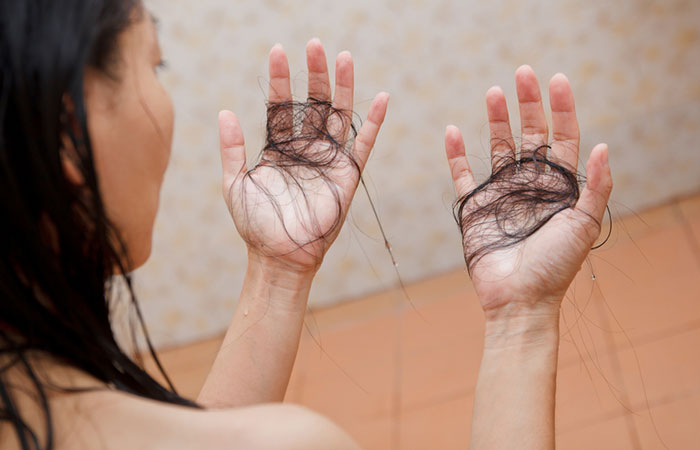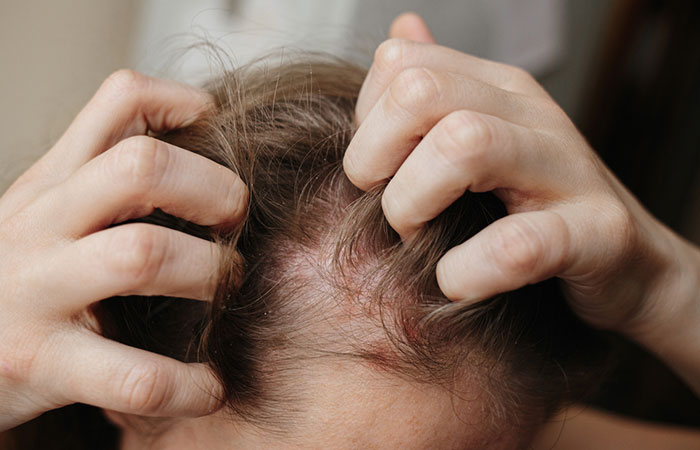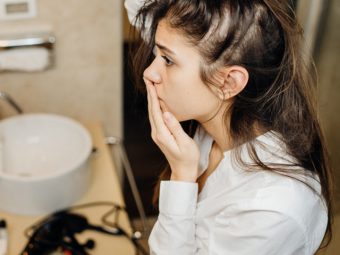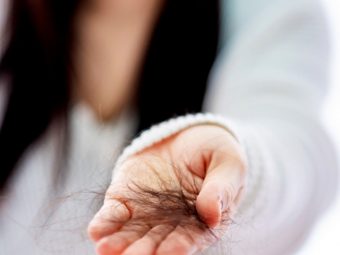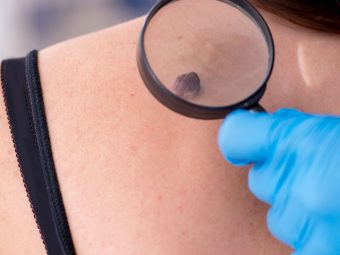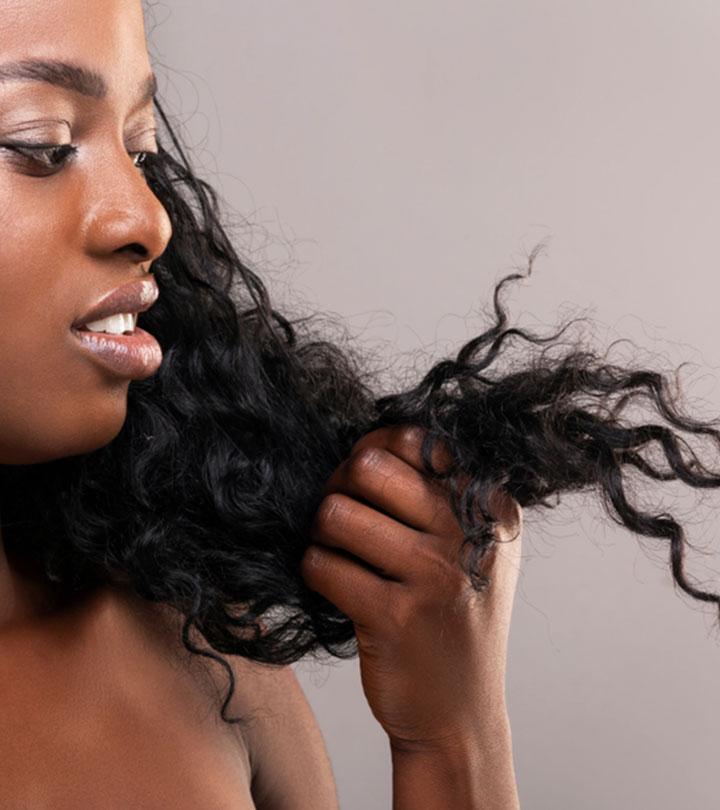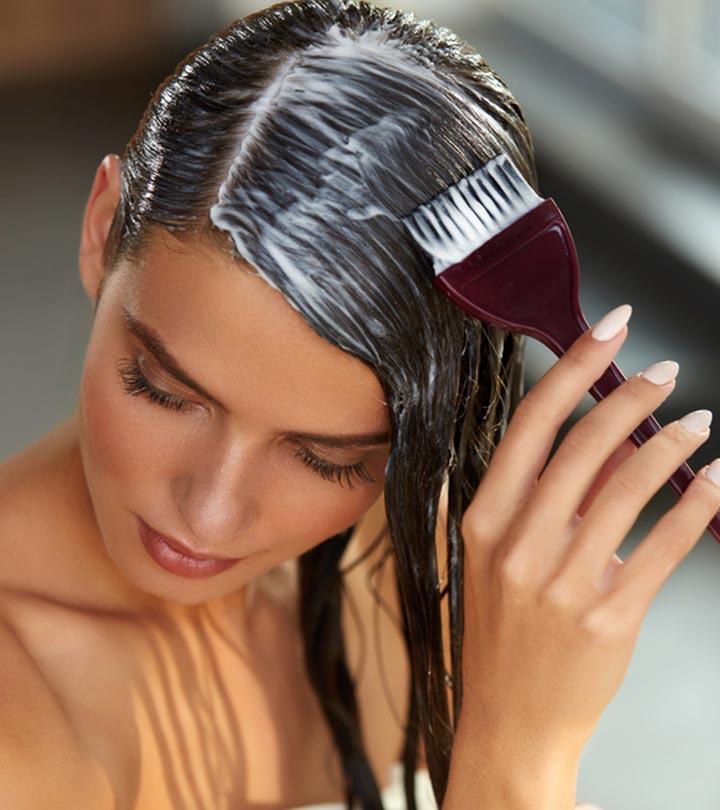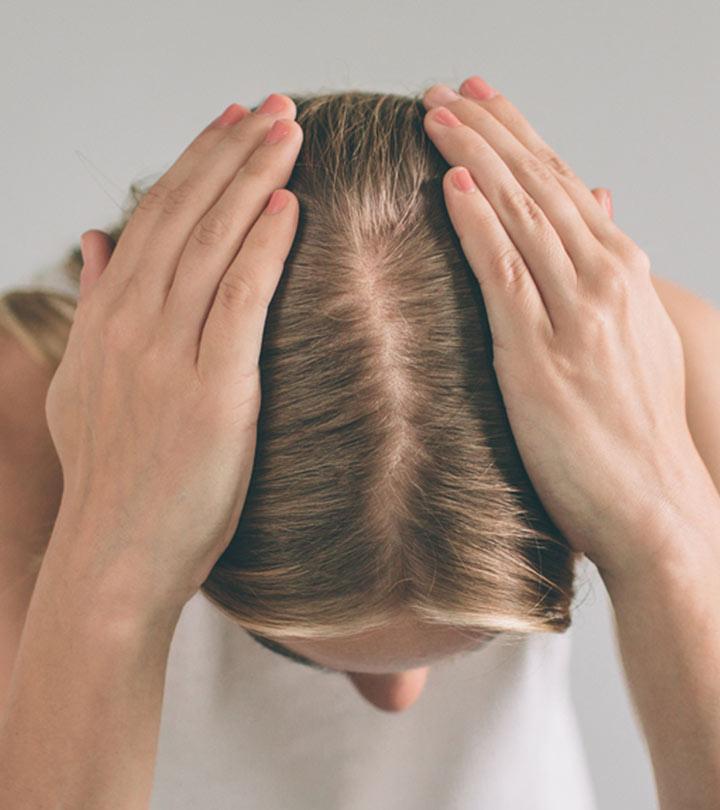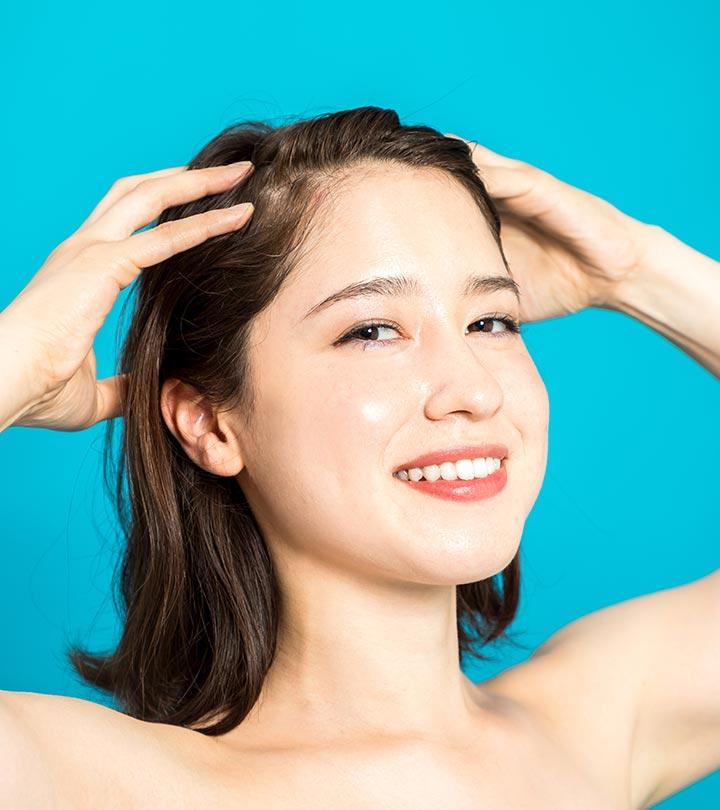Does Radiation Therapy Cause Hair Loss? Here’s The Truth!
Because learning what to expect can keep all the anxiety at bay.

Image: Shutterstock
Does radiation therapy always cause hair loss? This is one of the many questions that worry people who have been prescribed this treatment for cancer. The idea of losing clumps of hair at once can add to the trauma of dealing with the ordeal of cancer. And there is a grain of truth to that fear as radiation-induced hair loss is a common side effect of this therapy. Radiation dermatitis is another side effect.
Radiation therapy or radiation oncology is a common cancer treatment that often causes hair thinning and hair loss. A big concern for cancer patients is whether their hair will grow back after the treatment and hair shedding. Scroll down to know more about how radiation therapy impacts your hair and how to manage it.
In This Article
Does Radiation Cause Hair Loss?
Yes, radiation therapy causes hair loss. However, it affects only the body part that is being treated with radiation. If your head and scalp are exposed to radiation (usually after a brain tumor surgery), it can affect the hair follicles and cause hair loss while the rest of the body may be unaffected. The degree of hair loss depends on the dose and duration of radiation.
While hair loss is the greatest in the treated area, you may also lose hair in areas where the radiation exits your body. Scroll down to the next section to know how radiation therapy may cause hair loss.
How Does Radiation Therapy Affect The Hair?
Radiation therapy may disturb the growth of the hair follicles, causing hair thinning and hair loss. You may notice hair loss after three weeks of starting radiation therapy. However, the hair loss may be temporary or permanent depending on the dosage. If the dosage is low, hair loss is temporary and it may regrow within 3-6 months after the treatment ends (1).
The texture and volume of the new hair may be different than the pre-treatment hair. Often, the hair grows back thinner and curlier.
If the dose of radiation is high or combined with other treatments, such as chemotherapyi XA type of cancer treatment that involves anti-cancer drugs to kill the growing cancer cells in the body. , it may severely affect the scalp and hair follicles, minimizing hair regrowth chances. In some cases, hair loss may become permanent. Keep reading to find out what happens to your scalp during radiation.
Patients with at least one on-treatment Hair Loss score
Source: AURA3 - Hair lossThis graph shows the amount of hair loss that was observed in people during the first 24 weeks of treatments that include chemotherapy and Tagrisso 80 mg (a medicine used to treat non-small cell lung cancer) as part of the AURA3 Study by the FDA. Approximately 60% of people experienced no hair loss during the first 24 weeks of treatment, while 35% of people had some hair loss.
How Will Radiation Therapy Affect My Scalp?
During radiation, your scalp may become dry, irritated, or inflamed. Initially, the area exposed to radiation will lose hair, and the scalp may look like it is severely sunburned. It may turn red or pinkish due to inflammation and will feel tender to the touch.
After two weeks of radiation therapy, the scalp can get dry and itchy. This is a temporary condition, and the scalp will recover once the radiation therapy is over. During this time, the doctor may prescribe medicines to relieve inflammation and scalp discomfort.
 Quick Tip
Quick TipApart from medication, you may take precautions to reduce scalp sensitivity during radiation.
Caring For Your Hair During And After Radiation

You can cut your hair short or shave your head before starting radiation therapy. You may also use wigs with similar hair texture and color to cover up hair loss.
Here are a few tips to prevent discomfort and scalp sensitivity:
- Do not over-wash the scalp and hair to avoid irritation.
- Use a mild, moisturizing, glycerin-based shampoo or baby shampoos. Avoid products with harsh irritants, such as alcohol, parabens, perfumes, and artificial dyes.
- Always wash your hair with warm water, as hot or cold showers may irritate the scalp.
- Use a soft towel to dry the hair. Avoid excess tugging, pulling, or rubbing your hair as it might damage the hair follicles.
- Be gentle while brushing or combing the hair.
Sabrina, a blogger, shared her experiences with losing hair twice in her life; once due to chemotherapy and again due to brain radiation therapy. She anticipated the uncertainty of how her hair would grow back and wore a wig, which she named Wanda, to feel at ease. She added, “It could grow in a different colour or texture. It can also grow in sparse patches or with bald spots. I will be taking tons of vitamins to help strengthen the follicles, but in the end, anything can happen (i).”
 Quick Tip
Quick TipAvoid:
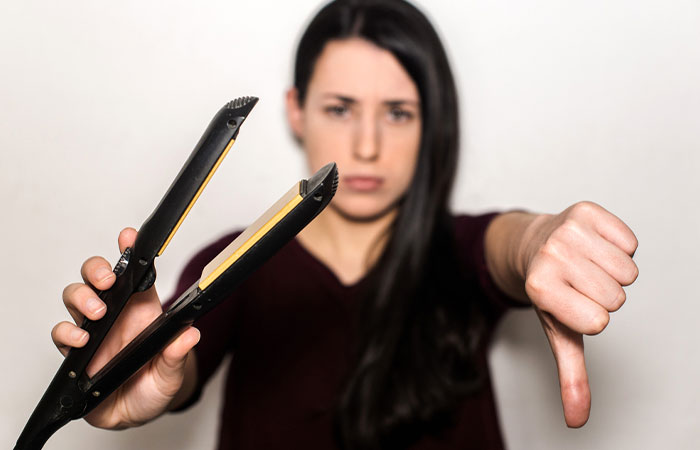
Hair care products like serums, hairsprays, gels, mousses, and masks
Hair styling tools like blow dryers, hair straighteners, and curling irons
Hair treatments like coloring, perming, relaxing, and keratini XA type of hair treatment that uses keratin (a natural protein found in the body) to smoothen, straighten and control frizz.
- Protect the scalp from harsh environmental factors, such as UV rays, humidity, wind, cold temperatures. As the scalp is tender and irritated after radiation, keep it covered with a cap, scarf, hat, or turban made with soft natural fabrics like cotton.
Tip: Follow these precautions for 3-6 months after the treatment. Avoid using any home remedies as they may interfere with treatment.
Infographic: Tips To Deal With Hair Loss After Radiation Therapy
Hair thinning and hair loss are the two common side effects of radiation therapy. Though new hair starts growing within 3 to 6 months after the treatment, some people may find it hard to deal with hair loss.
Check out the infographic below to learn some cancer care tips for managing hair loss after radiation therapy. Illustration: StyleCraze Design Team
Radiation therapy causes hair loss. During radiation therapy, the hair follicles are affected, leading to localized hair loss. However, this is temporary, and your hair may grow back when you recover from the treatment. The radiation’s duration, dosage, and intensity determine whether the hair loss is temporary or not. If the radiation dosage is low, your hair will grow back within 3-6 months after the treatment. You have to work with your doctor and follow pre-and post-therapy precautions. This may help promote the chances of hair growth.
Frequently Asked Questions
What percentage of radiation patients lose their hair?
It is estimated that 60% of people who undergocranial radiation therapyi XAlso referred to as prophylactic cranial irradiation, it is a treatment used to prevent brain metastases and reduce cancer cells. may develop radiation-induced alopecia (2).
Does radiotherapy make you bald?
Radiotherapy will only affect the hair growth of the specific area that is being treated. Your hair may grow back a few months after radiotherapy treatment is completed.
Are there any other treatments or medications that can promote hair regrowth after radiation therapy?
Yes. Using over-the-counter medication like minoxidil, finasteride, or low-level laser therapies may help promote hair regrowth after radiation therapy (2). However, their effectiveness varies from person to person and the hair loss severity.
Are there any hair care products or treatments that should be avoided during radiation therapy to minimize hair loss?
Yes, there are treatments you should avoid. Hair coloring, perming, relaxers, and hair products with harsh chemicals may cause hair breakage and damage, leading to hair loss.
Key Takeaways
- Radiation therapy can disturb your hair follicles, leading to thinning or hair loss.
- It may also alter the texture and appearance of your hair. Post-treatment, the hair often grows back finer and curlier.
- Radiation also impacts your scalp health, making it dry, inflamed, or itchy.
- Following certain precautions like avoiding styling products and tools, covering up against environmental elements, and exercising a gentle hair care routine can help ease the sensitivity.
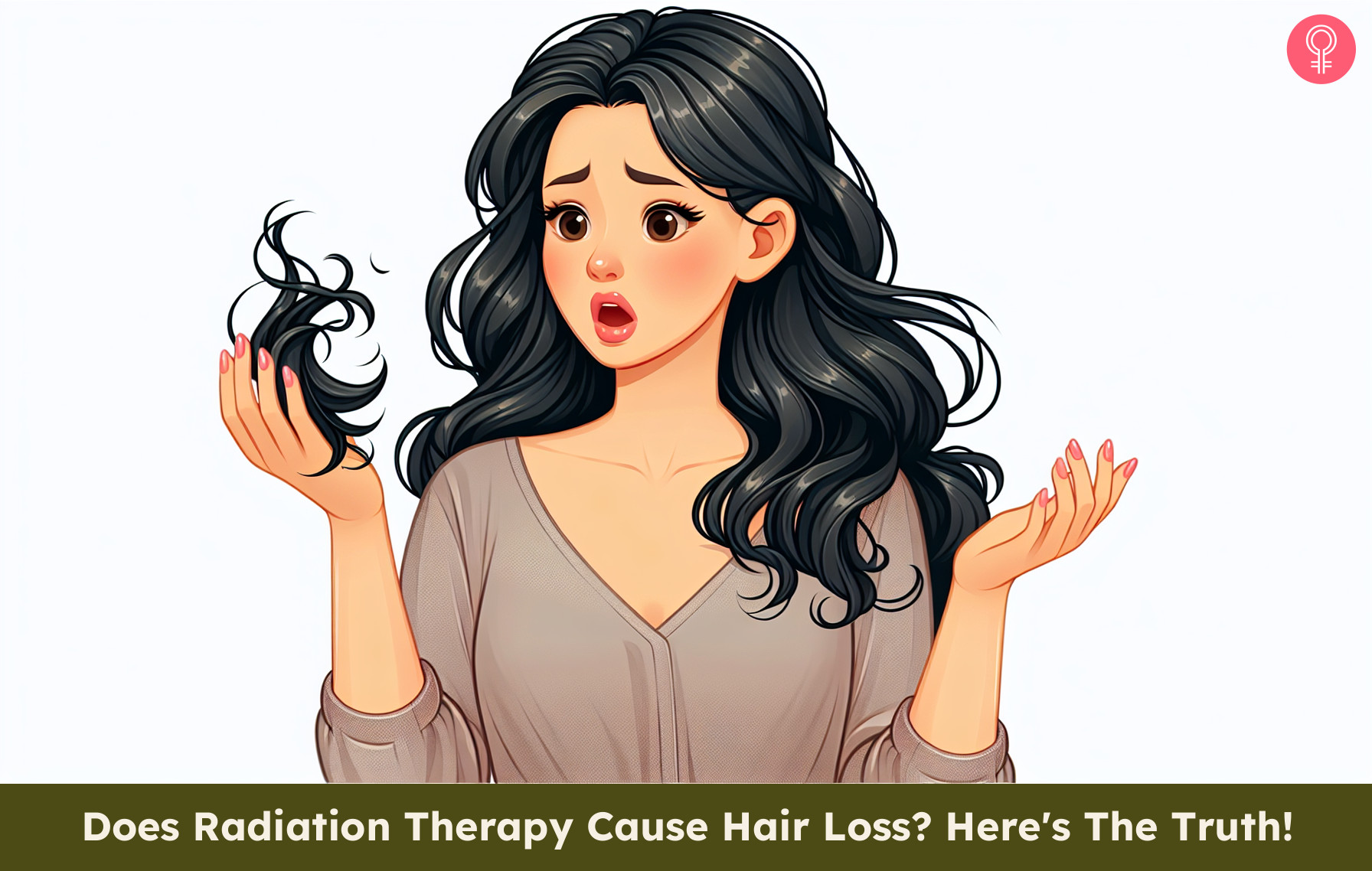
Image: Dall·E/StyleCraze Design Team
References
Articles on StyleCraze are backed by verified information from peer-reviewed and academic research papers, reputed organizations, research institutions, and medical associations to ensure accuracy and relevance. Read our editorial policy to learn more.
- Persistent chemotherapy-induced alopecia, persistent radiotherapy-induced alopecia, and hair growth disorders related to endocrine therapy or cancer surgery
https://www.ncbi.nlm.nih.gov/labs/pmc/articles/PMC6186205/#:~:text=Hair%20regrowth%20generally%20occurs%20within,to%20the%20head%20and%20neck.&text=Persistent%20radiotherapy%2Dinduced%20alopecia%20(pRIA,dose%20radiotherapy%20to%20the%20scalp. - Assessment and Treatment Outcomes of Persistent Radiation-Induced Alopecia in Patients With Cancer
https://jamanetwork.com/journals/jamadermatology/fullarticle/2768761






